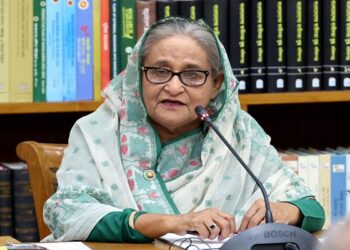Even though the Australian parliament has not yet passed a mini-pact, Indian and Australian negotiators have met to discuss a full-fledged free trade agreement. The negotiations for a full agreement are significant because they would be handled by the Australian Labor Party-led government, which took office in May, one month after the previous administration inked the mini-trade agreement with India.
In answer to a question, the Australian High Commission stated that the Australian and Indian Chief Negotiators met in Delhi on September 26 for discussions towards a Comprehensive Economic Cooperation Agreement (CECA).
The Australian negotiators were chosen from a team of 106 firms that visited India this week to look at supply agreements with Indian companies, while Amit Yadav, additional secretary, department of commerce, headed the Indian side. The Australian businesses will also look for business prospects in the areas of infrastructure, agri-food, digital health, and minerals.
Denise Eaton, trade and investment commissioner of Australia, stated to Mint that the mini-trade agreement known as the India-Australia Economic Cooperation and Trade Agreement (ECTA) was postponed due to general elections in Australia. The ECTA is anticipated to go into force by February of next year, she noted.
Denise said, “ECTA is really only the start. Negotiators are part of the delegation that has come. So when that’s ratified this will come into place. It will come into effect right about January-February next year. It’s just the start. There are more negotiations to continue to build and strengthen our relationships.”
She added, “There has been a little bit of a gap and that is mainly because we’ve got a new government. But with our new government in play now and particularly in the critical mineral space. Our new government has set some very ambitious targets for climate change and emissions reductions very much like the Indian market.”
The trade between Australia and India is anticipated to double over the following five years due to the unfettered access that about 95% of Indian goods will have upon the agreement’s entry into force.
Piyush Goyal, the minister of commerce, had stated that although negotiations had begun almost ten years prior, they were put on hold when the UPA government opted to negotiate the Regional Comprehensive Economic Partnership (RCEP). However, he had stated that free trade negotiations with Australia started in September 2021 after the present NDA administration opted against moving through with RCEP.
The Australian delegation is now in India to explore possible business and economic partnerships in key mineral sectors including lithium, graphite, cobalt, nickel, and titanium. India has either removed or decreased its mineral tariffs as a result of the ECTA. The trilateral Supply Chain Resilience Initiative (SCRI), which aims to improve the resilience of supply networks in the Indo-Pacific, includes Japan, India, and Australia as partners.
The ECTA, which was inked in April, is anticipated to take effect this year once both nations have finished their internal and parliamentary procedures. It is Canberra’s first trade pact without dairy and India’s first with a developed nation in more than ten years.
Without making any concessions, India retained several delicate items in the pact’s exclusion category (29.8% of tariff lines).
When ECTA goes into effect, Canberra will remove tariffs on the majority of essential minerals, including zirconium, titanium, copper, cobalt, nickel, aluminium, and tin ores.
Australia has the potential to be one of the top suppliers of cobalt and zircon to New Delhi and possesses deposits of at least 21 of the 49 essential minerals that India has identified. In addition, the nation possesses enough reserves to provide India with many other essential minerals, such as tantalum, lithium, and rare earth elements.
The trade treaty includes chapters on trade in services, digital trade, government procurement, trade remedies, rules of origin, temporary movement of natural persons, and dispute settlement in addition to trade in goods.











